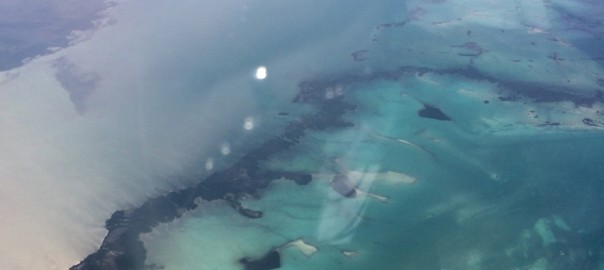I am not rested enough, not clean enough, to write into the fact that Love in the Time of Cholera jumped into my hands while the taxi honked outside in the snow. The second sentence – the whole entire detailed vast interior of his mind, the oblique references like the very last edge of light through a closing door, aye, marone, I can’t take my eyes off Jeremiah de Saint Amour naked and twisted on his had-enough floor, his shoulders broad and his legs scrawny, how Marquez even wrote the sun shining through the undersides of Saint Amour’s light beard hairs, not with words but with the magical refractile pointing of his words, the matrix they make in the mind, with that little amount of ink. and for god’s sake “the authority of death” in case if you have ever witnessed it, it was as if Marquez came to me from behind, cupped his hand over my mouth, pulled me back, my ear to his lips, and whispered the words like a secret we must keep to save our lives.
Marquez, like a demigod, a stranger, shows me a world like a ten finger string sculpture, or a narrative hand gesture, the steeple opened to all the wiggly people.
Ah, Marquez is maximal. Not just animals but nature and depictions of strangely ordered nature. Marquez writes a portrait that moves and lives in real time, a veritable zoo of domesticated and unlikely undomesticated animals that Urbino’s wife made of their home when they were young. The deer is coming in through the window, the deer is coming in the window to eat the first word I’ll have to look up.. anthurium. It will be an outdoor plant because Marquez wouldn’t have it any other way, this anthurium in the kitchen that the deer comes in to eat on account of what love has allowed in Urbino’s own home, given that he dislikes animals. Except his parrot with “all the qualities of a gentleman”, holy god, pupil of his and how the Prime Minister or Whomever and his entourage arrived after long tropical travel in velvety top hats, a la colonialism at its which-one-of-these-things-is-not-like-the-other best, to meet the famed bird. And then Marquez has the parrot not say a word for the entire two hour visit, proving to his reader that he is, in fact, writing about the world we live in. Every moment for Marquez is a gazing pool. I imagine him silvery and a little fat in his fine dress shirt, his breath boozy at his moustache, dancing, cigar tucked shallowly between his fingers, too.
Marquez remembers everything clearly, all the natures and the humors and the funny two-way glass at the intersection of god and man, and the infinite reflection that presents. How the city is the shell with an abominable inhabitant, humanity, which despite all its many Death is a continually renewing scourge on the city itself. And doing so Marquez creates City without Humanity and while it is rock and divine, it is not man, who comes later, in Marquez’ creation story, man comes in shortly after camp is set, man invades, opportunistically, circusly, and smelling of fried fish. And then he calls the other side of town ‘another time’ as his way of delineating dimensions we normally perceive all together. He sets us gazing about a cool dim colonial parlor, at the fine china and crystal, the absurd baubles of a less tremulous life, at the idiosyncratic self a person makes of what’s around, like a crow makes a nest.
Just like it’s a mystery to me how the music comes through the mind, it’s a mystery to me of the same size how character and story come through, so fully formed, like as through Marquez. I can only write like pinching for minnows with my thumb and forefinger in a pail of water. But so as the writing somehow tunes the fingers, typing as digital calisthenics to prepare the hands to cause the shadows to be cast just so. Or writing as the exercise of my finger passing through that shadowy, bending maw of possibility, to touch the outside edge of the eye.
Marquez is out on a rickety but lucky fishing boat, strapped to a wooden chair that is nailed to the deck, the silver loops of his arching fishing rod glinting like monocles all in a row keeping sight of his line piercing the roiling surface of the page to the twisting, pulling creatures below.
I think of Marquez’ description of boat fumes as a putrefied angel. There is the salty Atlantic smell, different from the fruity Caribbean sea, the Atlantic air, more astringent, and the glurgh-glurghling sounds where man meets the peaking grey-green surface tipping back and forth at its giant mercy, the boats and the five gallon buckets of whatever is in them, crabs and fish, and fish carnage for fishing, and the spasmodic clacking and white falling smoke, heavy with oil, of waiting boat motor. And how the worst place to stand of all is with one foot on the dock and one on the boat. And all so that later we will get a little drunk and breathe the night ocean air.
